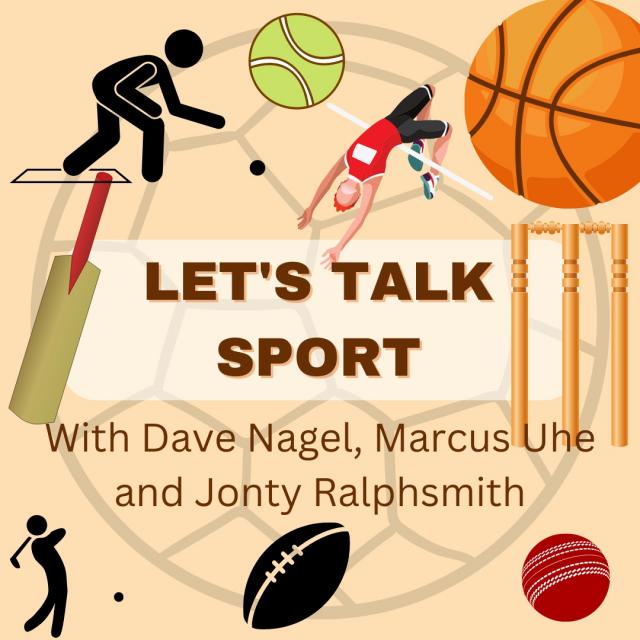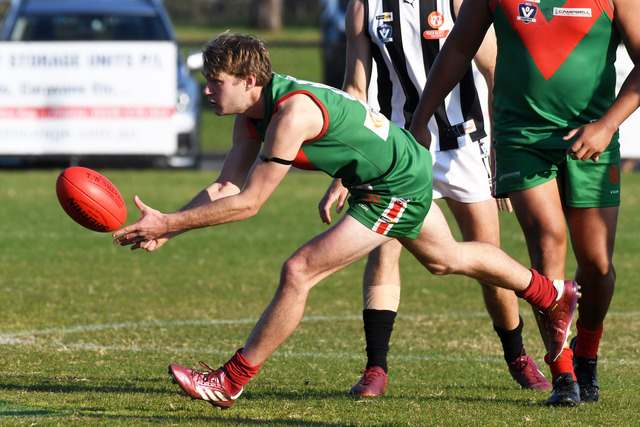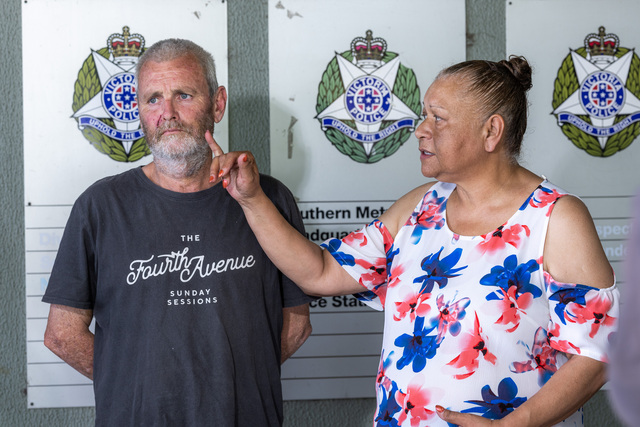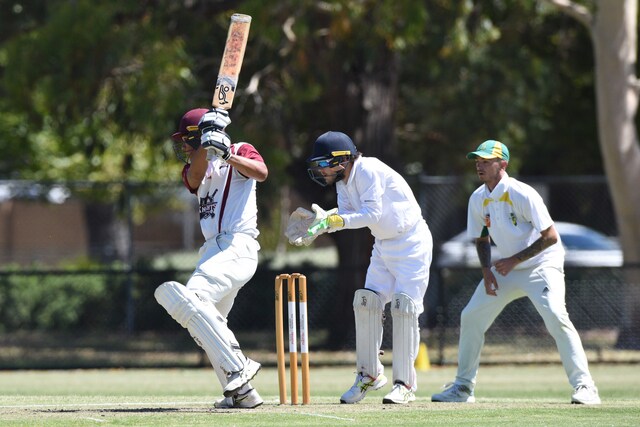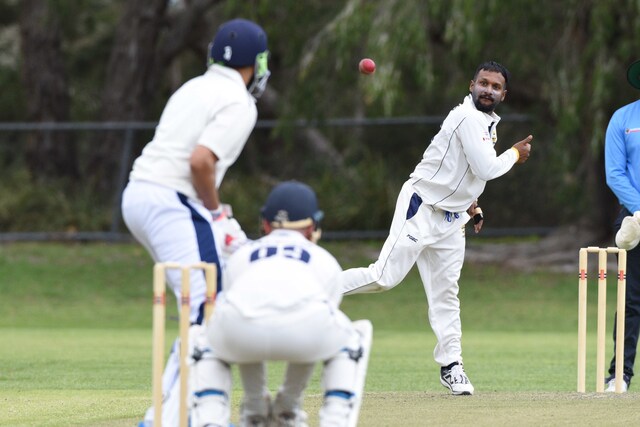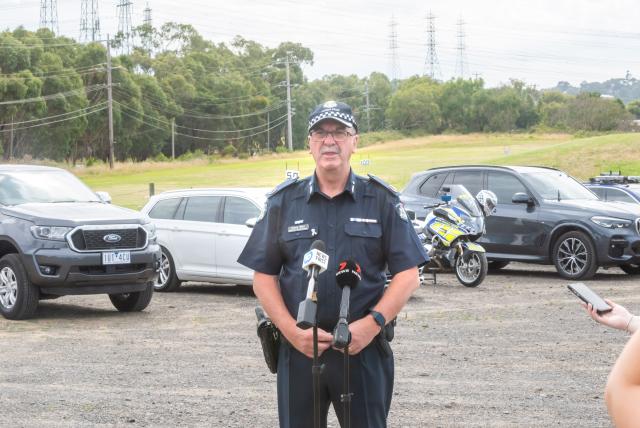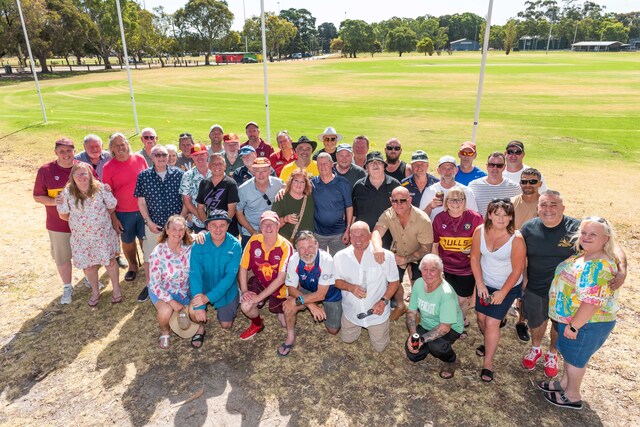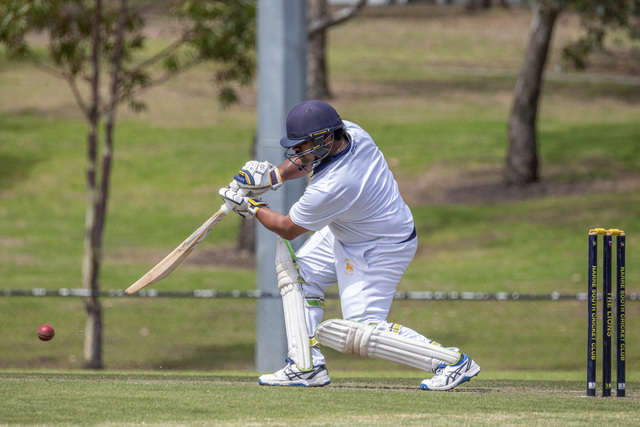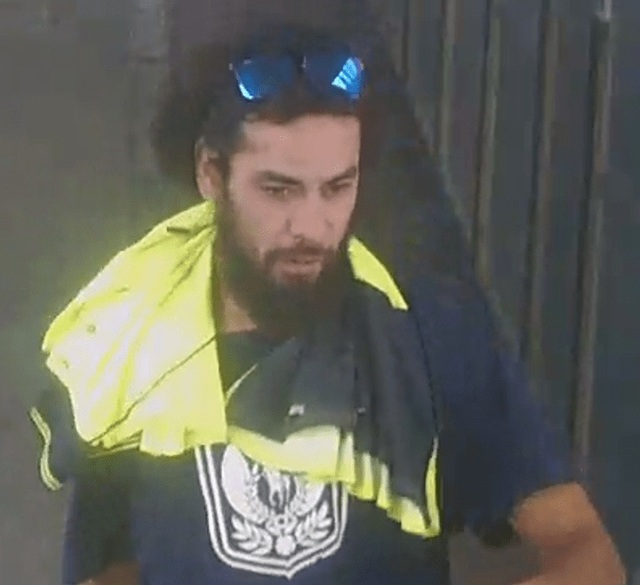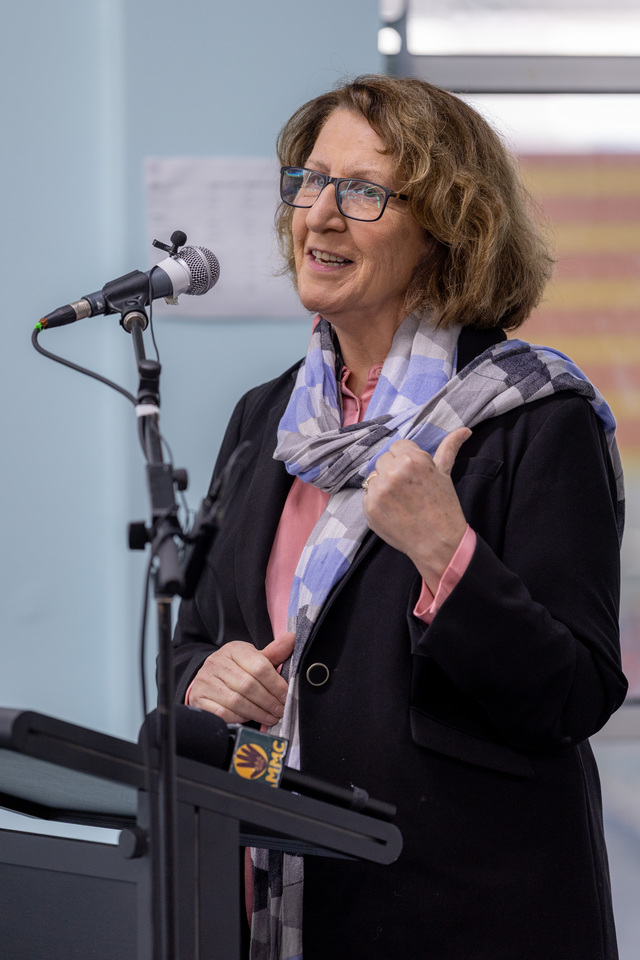MARCUS: Well boys, it’s reaching the business end of the winter sporting season now and we each saw some cracking games on the weekend. Let’s begin with our traditional opening segment; Jonty, what was your best action?
JONTY: There was great confidence from Pakenham’s senior women’s team going into a big contest against the top team, Wyndham, in the Big V Championship. It was a game they were going to need to win to qualify for finals. For the whole game, they just looked a class above; their shooting was a lot better and they defended really well. Wyndham, however, like all good teams do, were able to hold on. They made some big shots when they needed to before each break and went on a couple of little runs. They cut the margin to 10 at three-quarter-time and there was a feeling that they were going to run over the top of Pakenham, who have faded out of games at times; they’re strong starters but not always strong finishers. But Stella O’Loughlin found Briahna Whatman who hit a clutch three and extended the margin to 14, her second in a minute, and that was the moment you felt like they were going to win. It was probably more the vision from O’Loughlin to set up Whatman, who was completely open and nailed the shot.
DAVE: Stella is a star in the making! I watched a lot of games on the weekend – five in total – but best action comes from Officer’s game against Pakenham. It was a typical hot opening to a local rivalry between those two; the skills weren’t great but everyone was cracking in and having a go. The ball went into the Officer forward 50 right in front of the grandstand and Rob Porter Social Rooms. The skipper, Brent Moloney, leapt up and took a rock-solid grab 45 metres out, in between two Lions, and then went back and nailed the goal…and gave the big double fist pump. You could tell based on that moment alone that Officer was going to be the clearly better side on the day. Pakenham didn’t have any answers, no cleanliness; they just look devoid of confidence at the moment.
MARCUS: I was at Wandin v Narre Warren on Saturday where Narre Warren came from behind at half time to pull off a miraculous comeback. Wandin was ahead by three points at three-quarter-time but then early in the fourth quarter, Matt Butera found Will Howe, who’d had a pretty dirty day to this point. Howe marked at roughly the apex of the 50-metre line and the boundary on the wrong side for a right footer like him, but it just felt like as soon as he marked the ball, he was going to kick it, and that’s exactly he did. Great players stand up in big moments and that was pivotal, putting his side ahead and leading to a crucial win. Unlucky not to win best action from me though, was Cameron McEvoy, for his efforts in the 50m freestyle at the Olympics, with Ian Thorpe cheering him home and Giaan Rooney squealing on commentary; what a race!
ATHLETICS DROPS THE BATON
MARCUS: Boys, in light of the Olympics, I’ve been doing some thinking. Arguably the most famous moment in Australian sport is Cathy Freeman winning the 400m in Sydney in 2000. Another right up there is Peter Norman standing on the podium in 1968 with protesting African-American sprinters at the Mexico City Olympics after winning silver in the 200m. None of these results, however, have led to much success for Australia in the athletics on the global stage. It’s something I don’t really understand why, particularly in comparison to something like swimming, which you’d have to put on similar billing in terms of significance. We have athletics carnivals in school like we do swimming carnivals, it’s easier to go for a run than it is to go for a swim, and I would argue that the skills are more transferrable to other sports. Sure, you need certain equipment for things like pole vault, high jump, but pure track events, I’m a bit stumped. Do you guys have any theories as to why it hasn’t kicked-on?
JONTY: It’s very big when you’re a junior, but I think a lot of people use it as a platform to become really strong athletically, and transfer that into another sport – it’s not seen as a career sport. How many footballers, rugby league players, cricketers, would have done little athletics and then transferred to a sport more financially viable? Yes, the Olympics is the main draw card, but footy is so culturally accepted in Australia and much better paid.
DAVE: Marc Blicavs at Geelong still gets talked about as a former steeplechaser!
MARCUS: Is swimming a more viable career path than athletics is?
JONTY: I think it’s different because swimming is so specialised and not necessarily as transferrable to other sports, whereas good athletes in an athletics sense are bound to find their way to another sport.
DAVE: I thought about the dynamics of the human body. Is there a particular body type that excels in the pool better than others? Some wonderful athletes are no good at swimming either; I’m not really sure.
MARCUS: It’s really strange for me, even from a publicity standpoint, in swimming you can barely see the athlete’s face; they’re only visible when they’re on the podium but if they were walking down the street, you probably wouldn’t recognise them because of their goggles.
DAVE: Is it the environment for us? Like in Queensland where it’s hot, you jump in the pool and have a swim; that’s what you grow up with as a kid and you just follow it on; maybe that’s why swimming is so strong.
MARCUS: Mystery unsolved! Maybe Jemima Montag’s success in the walk might spark some enthusiasm in the weirdest sport in the world.
JONTY: We’ve had a bit of success there over the years. Side note, what’s happened to our rowing program? We can normally bank on a medal or two there but they’ve really let us down.
DAVE: By the way, my diving prediction early came true until one of the girls nearly jumped off the side of the board!
MATCHUP NIGHTMARES
MARCUS: Watching Saturday’s Wandin v Narre Warren game gave me the pleasure of watching Aaron Mullett in full flight. He kicked five goals in the first half, and still has the speed to put him in the top bracket of the competition to go with his lethal left foot. He kicks goals from outside 50, he’s strong overhead, he plays out of the goal-square in somewhat of a Dustin Martin role, where he can go on-ball if needed. Watching him go about his work, I thought that he’s probably the one guy I would least like to see my magnet next to on the whiteboard. I think he’s the single-worst individual matchup in Outer East Premier Division football, because he can do it all. Who is the Mullett equivalent in your competitions?
DAVE: I wouldn’t want to play on Nathan Gardiner, that’s obvious. The full-forward from Cora Lynn, he’s big, strong, covered in tattoos, got some mongrel in him and uses his physicality as well as anyone. So ‘Gards’ is up there. Brad Butler from Tooradin too, he’s 6’2’ and can jump, so much so that I reckon he could have been an Olympic high jumper. He can play as second ruck when he’s only 6’2’’, but he’s also got speed; he can play half-forward at times, go up the ground. I don’t think there’d be a player in local footy that’s kicked more goals starting at half back or the wing, taking a few bounces and kicking a goal from 30/40 out – that’s his speciality. I’d hate to be running up and down the ground with Brad Butler and trying to compete with him in the air because he’s got so many physical attributes. And Xavier Hughes from Inverloch; he’s an old school defender and opposition supporters hate him, because he loves riling people up. He’s always in scraps, he’s strong, versatile and never misses an opportunity to piss people off. It would be a horrible afternoon at the football playing on him.
JONTY: I’ve looked at it from a different perspective and considered who players would least like to have to match up on. In local footy, small defenders are such an asset when you’ve got a really good one but it can be a position that’s hard to recruit for. Therefore, I’m thinking Jason Wells from Longwarry would be hard to match up on. He’s got the perfect small forward skillset where he can take a mark, get up the ground, work his opponent and burn them in terms of his work ethic. He’s also got that nose for goals as well – he’s up to 66 for the year and often in the first two-thirds of the season, he kept getting the opposition’s best defender, because of how good a goal scorer he is. They’ve brought in Nathan Carver from Hampton Park, who’s got a lot of attention, and that’s really freed up Wells. He’d be one you don’t want to play on.
DAVE: He’s like the Jamie Elliot of local footy.
PENDLEBURY
MARCUS: Righto boys, I know I give you guys a lot of grief for working Collingwood into every episode, but when you’ve got a player like Scott Pendlebury reaching 400 games, I think it’s warranted. Personally, he was one of the first non-Essendon players I really came to enjoy watching; the fact that he rarely makes a bad decision and how hard he is to tackle. He’s someone I’m really envious of that has never played in an Essendon jumper. Outside of a Brownlow, he’s got a resumé as good as anyone’s; he’s really done it all. Rather than simply sing his praises, I’d love you guys to consider him from a recruiter’s perspective (Jonty) and as someone to coach (Dave). I put to you the argument that he’s the perfect footballer, and justify why, given your knowledge in those fields.
JONTY: He’s the sort of player that was always going to have longevity, for not only what he does on the field and the fact that he never gets tackled, but more so his professionalism. If we’re talking scouting, people want good characters and he was always one that was going to get the best out of himself; and you can build the club around him because you know his professionalism is going to rub off on other players. Even when he first got to the club, Nick Maxwell said the other day that they would go for walks at Williamstown Beach to chew the fat, and he had a purpose for everything he was doing in the context of his recovery.
DAVE: I’m involved in the burgeoning women’s football industry and one of the biggest weaknesses in the game at the moment is on-field leaders who can coach and communicate out on the ground. On Friday night, Pakenham had a girl going for the ball and you hear encouragement, rather than constructive instructions. We had to tell the girls to leave the cheering to the fans, and say things like “hey I’m here,” “you’re clear”, things like that. Pendlebury is the perfect bloke for that. Last year in the grand final, who was there when the premiership was on the line…Pendlebury in the middle of the ground. I think there’s no better at doing that than him, the directing, coaching out on the ground. All the great teams in recent years like Richmond, Geelong, Hawthorn, Brisbane, they all had great on-field leaders and it’s one thing you can’t take for granted.
JONTY: Craig McRae talks about that component of him ad nauseam. And his IQ that goes with it should not be overlooked.
DAVE: I reckon when you talk to one-another on the football field, and communicate well, it’s like having an extra two teammates, but when you don’t have it, it’s like you’re playing blind. It’s such an underestimated aspect of the game.
MARCUS: Well said boys, and congratulations to Scott.

